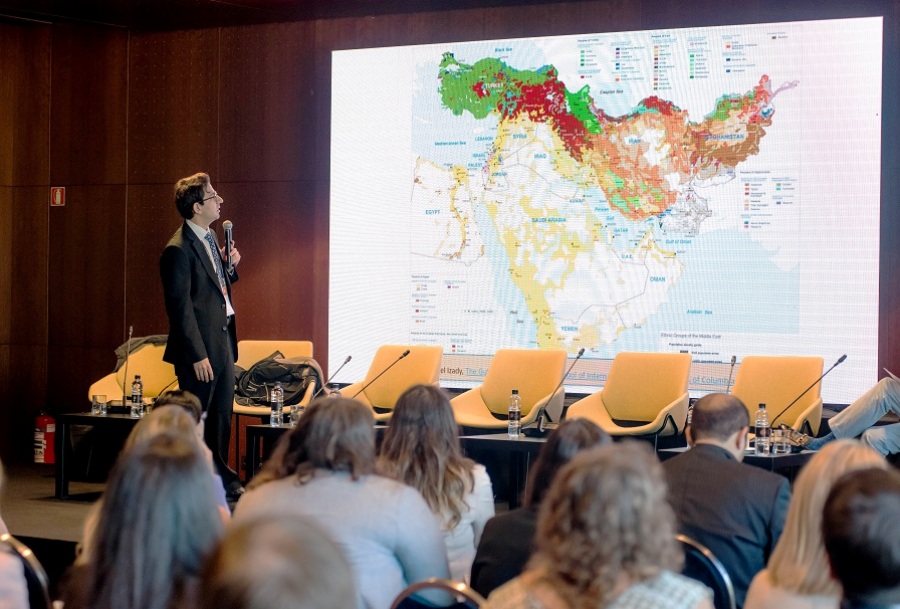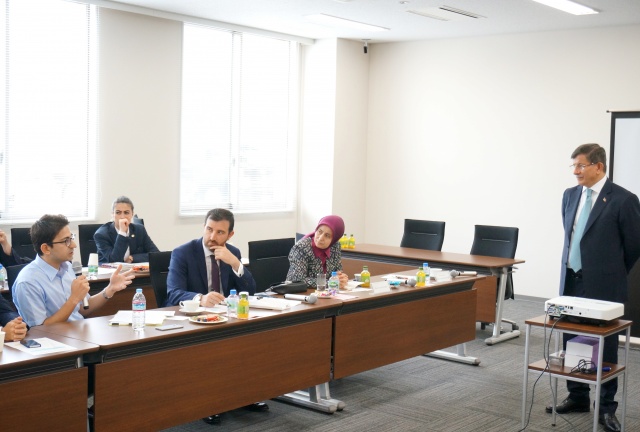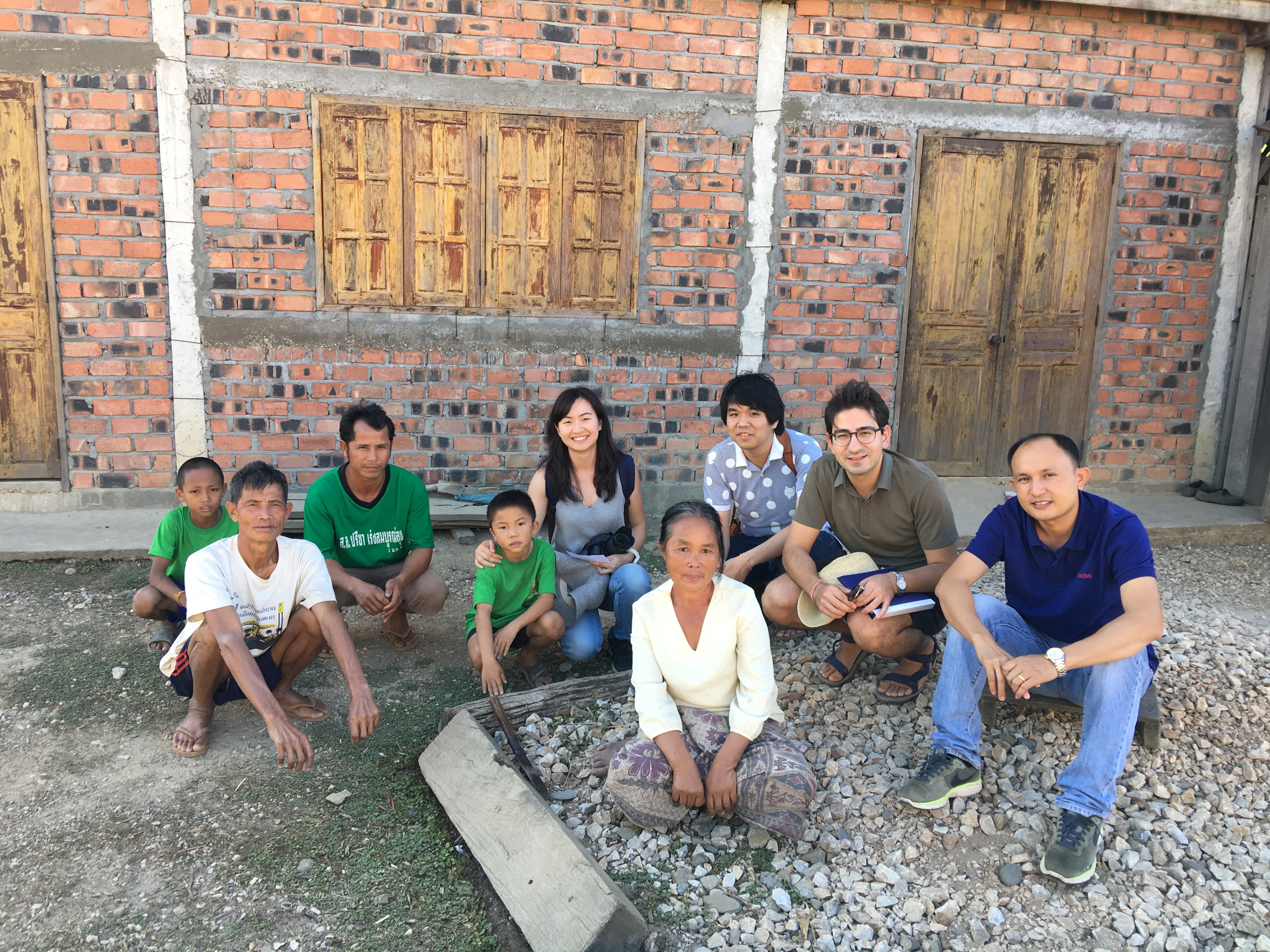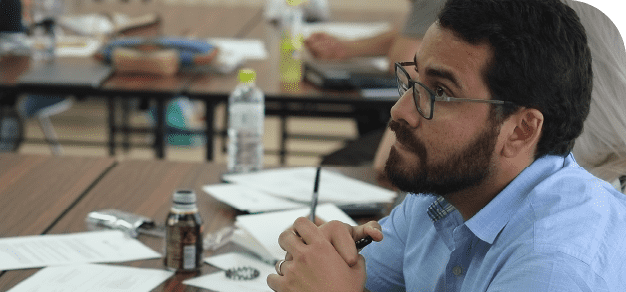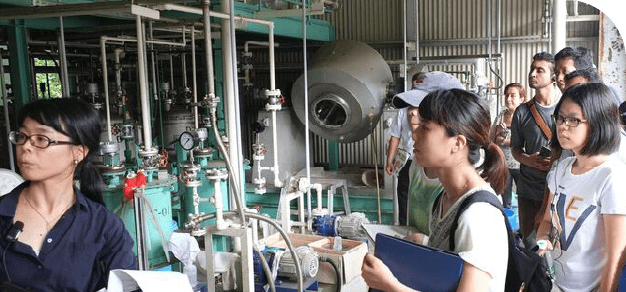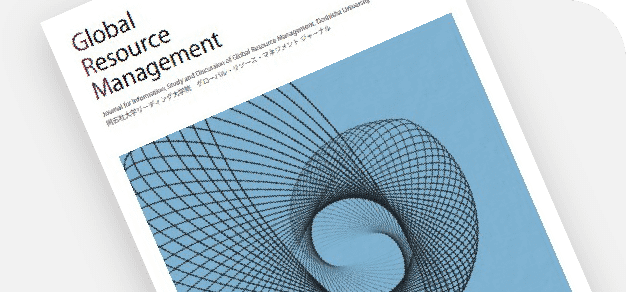GRM Students’ Reports
GRM Program Completion Report
Graduate School of Global Studies KHALILI Mostafa
2020/09/09
My primary motivation to join the GRM program from the beginning of my doctoral course lay behind my interest in conducting interdisciplinary research since I was a student in Electrical Engineering. My strong tendency toward humanities made me change my major from my master’s to social sciences. Later, participating in the GRM program in my doctoral course helped me to maintain my association with science and engineering perspective while being a Global Studies student.
To think of my acquisition from the GRM program, I find it two-folded: first, through the lectures and group activities that I had gone through during the three and half years of my being part of the program and second, through my individual activities in internship and field research courses.
Conducting group activities during the Joint Seminar classes with the students from the engineering background and dealing with some real problems in different parts of the world in a simulative way helped me to understand better the multi-dimensional aspects of the barriers of the sustainable development. For instance, it was through taking on-site practice II courses that I learned how technological barriers to developing geothermal power plants in Kenya are interlinked with several social factors on the ground, say, dealing with the Masai community, the native nomadic tribes living in the middle of the power plant site. Such a deep and multi-disciplinary understanding of the real-world problems and constrains would not be have been materialized without the field trip that the GRM program facilitated for the group members to Kenya.
Furthermore, through the courses conducted as introductory to various engineering majors, I learned several useful and practical information. For instance, though I was Electrical Engineer, it was during the “Introductory Laboratory of Infrastructures” course that I learned how the new advancements in electrical engineering are being easily transformed globally, or how the technological advancement teams in the big companies work hand in hand with disaster management teams to ensure the system’s security. As another instance, while my country, Iran, has been put under severe economic sanctions as a result of increasing Uranium enrichment level, it was by taking the “Introductory for Science and Engineering” course that I understood the technical details of Uranium enrichment and its importance in international treaties. We also discussed how such a technical work done by a group of scientists could have a direct impact in changing the lives of ordinary people on the ground. The moments of linking such technical details from engineering to political science or anthropology were the most joyful moments I had experienced through the GRM program.
In my individual activities, throughout the field research courses, I had a chance to once travel to Iran and once to Europe to collect some data and interviews with different individuals that I later used in my doctoral dissertation. Spending a couple of weeks at the University of Lancaster in the UK through the support of the “Internship I” course of GRM helped me to learn how the international projects are being managed in leading research centers of the world. Moreover, it helped me to understand and anticipate the barriers I shall face during my job-hunting process in academic field and be prepared for them.
The highlight of the GRM program for me, however, was winning GRM student’s research grant together with two other students from China and Thailand which was a project proposal from our side to conduct a group fieldwork to assess the impacts of the Xayaburi dam’s construction in Laos on the local’s daily lives. This project gave an opportunity for us, as a group of students coming from different backgrounds of mechanical engineering, economics, and global studies, to work practice a group work outside classroom and to analyze the problems people face on the ground from our different perspectives. Through the experience we gained from the fieldwork, problem discovery, analyzing, and proposing a solution, we had a chance to experience how large-scale projects should be dealt with. The result of our investigations, later, published in the journal of Global Resource Management, Vol 5, pp. 1-19, titled “Impacts of Dam Construction on the Livelihood of Villages in Thailand and Laos along the Lower Mekong Basin: From the Locals’ Perspective.”
Another valuable experience that I gained through the program was participating in 2018 Bled Strategic Forum which was held in Slovenia, where a group of GRM students conducted a panel named “Conflict Prevention, Peace Building and Mediation” in cooperation with the faculty of social science of the University of Ljubljana. The Forum, where several politicians, representatives of NGOs and think tanks had participated, was, for sure, one of the most important events that I had ever attended in my life and helped me to improve my academic as well as non-academic networks and presentation skills.
All these experiences, later, helped me in completing my doctoral dissertation in the graduate school of Global Studies. The strongest linkage that I see between the knowledge and experiences I gained from the GRM program and my doctoral dissertation might be found in starting the analysis from the ordinary people, very subjects of every sustainable development program. My doctoral thesis, titled” everyday ethnicity of Kurmanji speaking Kurds in Iran; a case in political anthropology,” investigates Kurdishness and Kurdish nationalism from below, in ordinary lives of the Kurds, who may or may not, be politicized in their everyday lives in one of the most volatile regions of the world, the tripoint of Iran, Iraq and Turkey. While the dominant approach in studies of the Kurds and nationalism, in general, is to initiate and to confine research merely in an analysis of political discourses, the multi-disciplinary and multi-dimensional approach learned through GRM programs helped me to shift the focus of my analysis to the ‘forgotten’ ordinary Kurds, bringing their lives into attention not only through political lenses, but also by acknowledging their multiple identities.
On the other hand, learning to have a critical understanding and analysis of the roots and causes of the problems on the ground in the GRM program inspired me to take an anthropologic approach toward political conflicts. I learned in the program that for building a harmonious society, we cannot avoid resolving problems that cause conflict; however, the nature of conflicts is changing, and we need to tackle newly emerging issues with new perspectives. My doctoral thesis, in this regard, argues that reifying the Kurdish nationalism by reducing it merely to the political issues of the primary stages of the nation-state building process in the Middle East in the early 19th century prevents us from seeing how the nationalistic discourses are being reproduced differently in the contemporary era. Though my dissertation is more in analytical level and does not go beyond the academic realm to the policymaking level, it can be a source of raw material for different think tanks and policymakers in the region to investigate ways to prevent conflicts, using mediation, and building lasting peace in the Middle East.
